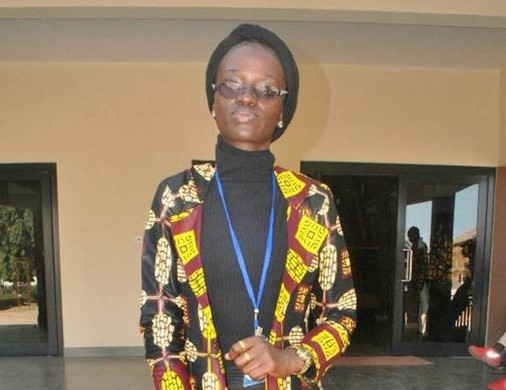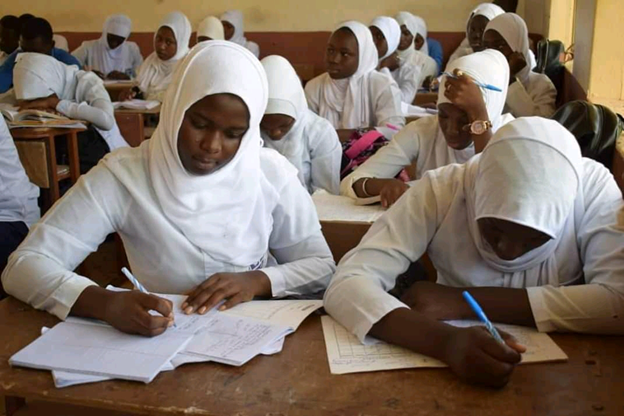By Momodou Jarju
Reading apathy is a major characteristic among Gambians. This trait has become a growing concern among budding scribblers and educators in particular in the country.
According to UNESCO, in 2015, the literacy rate among the population aged 15 and above is 50.78%.
Despite there is an 8.83% increase from 2013, some Gambians believe reading and writing need to be improved in the country.
It is against this backdrop that scores of Gambians, in marking International Literacy Day (ILD) slated for 8th September, 2020, are imploring the Barrow-led administration to build public libraries across the country to entice Gambians to reading and writing culture.
Ebrima John, teacher cum poet, said the literacy rate in The Gambia is quite low, saying it’s unfortunate that many Gambians don’t value reading which helps in the discovery of knowledge and improves one’s communication skills.
The educator said as a Literature-in-English teacher, he often witness many of his students declining to choose Literature the moment they reached grade 9 because of the novels, plays (Dramas), and poems they are supposed to do.
“To them this involves lots of reading and they end up running from the subject. So in a class of 50, I have only 5 or 6 pupils that will choose the subject,” he said.

Mr. John, a poetry finalist, said many factors erode the taste of reading in people nowadays, citing the emergence of the new media as the most recognizable. He said many youngsters would rather spend 3 hours on Facebook or WhatsApp than reading Baaba Sillah’s “When The Monkey Talks”.
“However, having libraries in communities will be a stimulant to many people to indulge in the art of reading. Some want to read but don’t have access to the book(s) they want to read, others want to read but the book(s) are expensive to buy. So having community libraries will help eliminate that,” he said.
Speaking further, Mr John also known as The Pen Dictator, proffered that schools can initiate literary competitions on Poetry and Essay “where those that manifest crude skills will be rewarded.”
This, he opined, can encourage lots of pupils to read and write in order to win awards like their peers.
Commenting on the theme marking this year’s ILD, “Literacy teaching and learning in the COVID-19 crisis and beyond” with a focus on the “role of educators and changing pedagogies”, Mr. John said COVID-19 has presented the need for educators not to incarcerate their pedagogy only via the traditional classroom.
He observed that online education is now an alternative and an effective platform to disseminate knowledge in this era of physical distancing.
“Since school has closed down and most pupils are at home, educationists or teachers should use the opportunity to lure students into reading and writing. With the support of administrators, each school in the country can organize a school based writing competition where students will benefit from scholarships and rewards,” the teacher-poet said.
This, John believed, will make students’ ‘home-stay’ less boring and in turn help uplift their literary skills.
‘Literacy Based On School Subjects’
Mariama Jammeh is a teacher-student pursuing Advance Diploma Secondary Certificate in English and S.E.S at The Gambia College School of education.
Jammeh, also an aspiring writer, said the literacy rate in The Gambia is very low, especially in schools. She said students only tend to read and write based on their subjects alone and not for instance ‘creating literature.’
For the country to increase its literacy rate, Ms. Jammeh is of the conviction that building libraries in schools, from nursery to University levels, will augment the rate.
“Reading and writing should be nurtured in citizens from an early age and accessible public libraries should be built,” she added.
Like Mr. John, Ms. Jammeh proffered that reading and writing competitions should be part of schools’ extracurricular activities and “eye-catching prices should be given to the winners.”
She hoped this will help in reinforcing students to be challenging one another when it comes to reading and writing.
Gambia College graduate cum teacher, Sulayman Darboe said more sensitization needs to be done for parents to send their children to school and to strengthen legislation and enforcement on compulsory basic education.
“Frequent PTA (Parents Teachers Association) meetings must be held to carve out new means of involving students for not only academic excellence but also reading and writing,” he said.

Mr. Darboe, who is an avid blogger too, said community based and public libraries should be established across communities in The Gambia to promote reading and writing among others.
He also agreed that the country’s literacy level is low, rating it at 35%.
Writing Improving, Reading Lagging…
Aspiring writer and young emerging politician, Saidou Anna Ibn Ahmad, opined that writing has improved since the dawn of the so-called new Gambia especially among young Gambians.
Born in Jarra Soma and young writers’ representative at the Writers Association of The Gambia, Ahmad said in 2019 to date, more than five young Gambian writers have published books.
This, he said, has never happened in the literary history of the country.
On the reading aspect, Ahmad like previous commentators, believed is still very low, attributing it to a culture many Gambians dislike.
“As an association- Young Writers Association of The Gambia (YWAG), we have decided to visit schools in order to establish reading and writing clubs where students will learn how to improve their reading and writing skills,” he said.

The YWAG representative also challenged the central government to initiate the building of public libraries across the country, indicating that knowledge can only be acquired if one reads almost every two days.
Proffering a grassroots approach to encourage reading and writing, the young emerging politician said library clubs as well as creating literacy periods on schools’ timetables will help.
“In some private schools, they have specific time for only reading. The students will open a particular passage and the teacher will be there to facilitate and help them pronounce the words correctly,” she said.
Also commenting on the theme of this year’s ILD, Ahmad said the role of educators is highly significant in the present context of COVID-19 because as learning facilitators, they can guide students through online education.
He said educators have been considered the cream of the society since they help children to become good citizens.
For his part, youth leader, Ebrima Secka, opined that ‘proper techniques’ of reading and writing ought to be taught in schools and motivate young budding writers.
Secka also believed that accessibility to reading materials is an obstacle, which initiating public libraries would proffer Gambians and students in particular, to read and write.
“The school principal should allow students to write and read during assemblies and credits should be given to the best writers and readers. And if possible teachers should be provided for teaching students techniques of reading and writing,” he said.
Nonetheless, Secka urged educators to amid the pandemic create electronic forums where they will assign students to read which will attract marks.
Library Structures Not Enough!
Award winning painter cum poet, Aji Ndumbeh Jobe, believed that having library structures is not enough to encourage reading and writing culture in the country.
She cited the library at the Gambia College as an example, where she observed sadly that there are some books in that library untouched. She agreed with Ahmad that writing is better embraced to reading.

“I believe that only having a structure of a library will not help in reading and writing as well. But I believe that it could be in the form of seminars, it could be in the form of reading and writing competitions among schools or within schools especially at a tender age to actually promote reading and writing,” she said.
“I believe every reader is a writer, but also you cannot write vastly if the reading ability is a bit dormant.”
While Poet Jobe agreed that educators could arrange online classes amid the COVID-19 pandemic, she highlighted those online classes come with challenges such as lack of megabits for the learners as well as educators and also having learners at the same time for classes pose to be an obstacle.
Ms. Jobe also believed the zeal must be in the individual to read and write, while adding that learning does not stop in the four corners of the classroom.





















